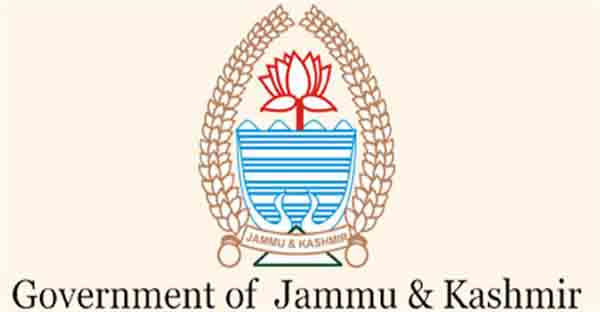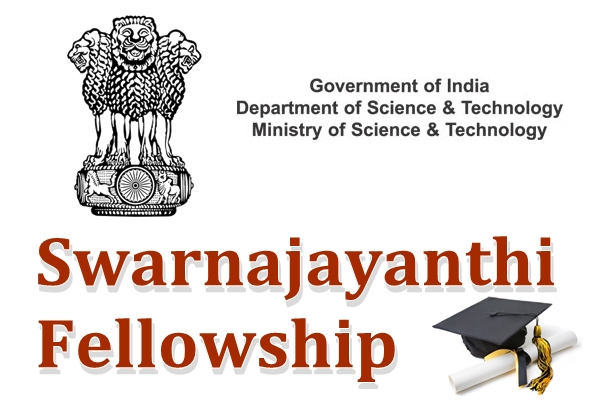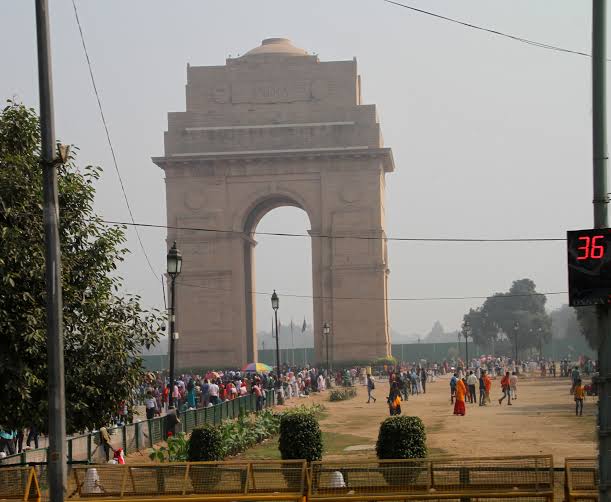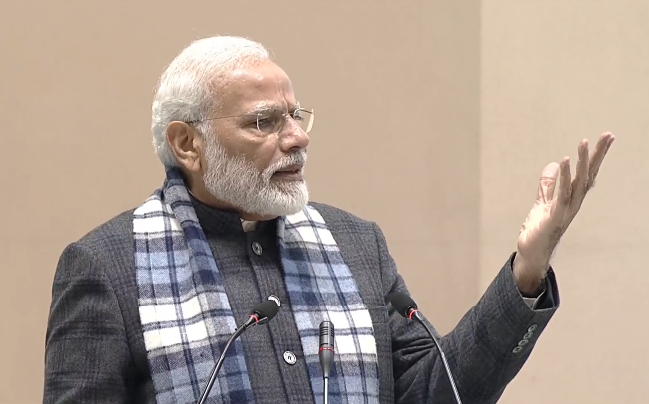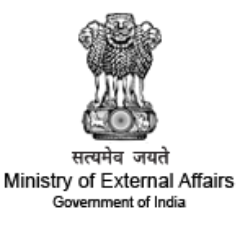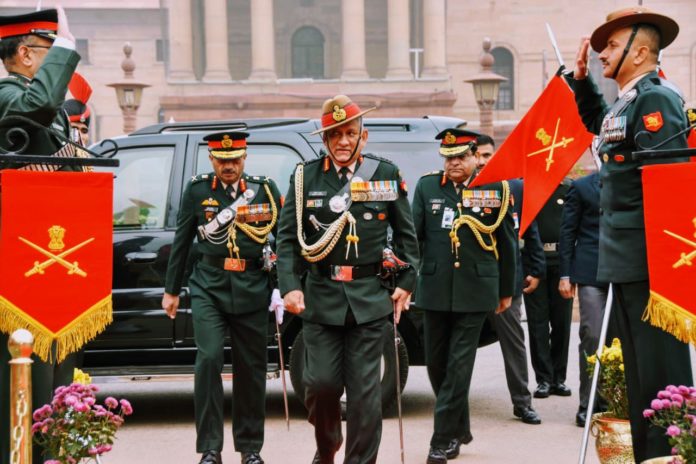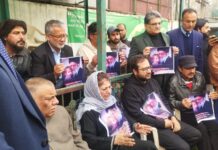Broadband internet services restored in 80 govt hospitals of J&K
Self Propelled Accident Relief Medical Vans set to improve disaster response of Railways
New Delhi (NVI): In an effort to improve response during disaster, Indian Railways is gradually replacing locomotive hauled Accident Relief Medical Vans (ARMVs) with Self Propelled Accident Relief Medical Vans (SPARMVs).
Specification of high speed Self Propelled Accident Relief Trains (HS-SPARTs) with speed of 160 kmph has been finalized and it is planned to be procured in addition to existing 110 kmph SPART.
Further, to improve the capacity during restoration, 175 Tonnes cranes are under procurement which is an upgradation over existing 140 T cranes available with Indian Railways.
The concept of golden hour has also been recognised to expedite response time during disaster.
The main areas of focus on disaster management like faster response better facilities and equipment, expanding resources to meet requirements in major accidents, coordination with other agencies of central and state governments training and preparedness
Indian Railways has an organized system of relief for managing accidents with its own resources.
It consists of more than 6 thousand trained breakdown staff, 176 Accident Relief Trains (ARTs) and 86 Accident Relief Medical Vans (ARMVs) made using passenger coaches.
All Accident Relief Trains and Accident Relief Medical Vans have pre-defined beats, inspection schedules and response time.
In addition, there are 90 break down cranes of various capacities over Indian Railway system.
All equipments in Accident Relief Trains and Accident Relief Medical Equipments have been standardized based on High Level Committee recommendations.
Some of the items being imported for rescue, relief and restoration are as follows:
Medical equipments like Augmented first aid box, body bags, foldable chairs, portable fire extinguishers, operation theatre equipments, etc.
Hydraulic re-railing equipments (HRE) emergency pneumatic air bags for lifting generators & electrical equipment, hydraulic rescue device (HRD)Wire rope sling & shackles, fire fighting equipments abrasive cutting tools, signaling & communication equipments
Indian Railways also conducts periodic mock drills with National Disaster Response Force (NDRF) for training and ensuring preparedness during disaster.
Government gives Swarna Jayanti Fellowship to 14 scientists
New Delhi (NVI): Fourteen scientists were today awarded the Swarna Jayanti fellowships by the government for projects containing innovative research ideas with potential of making impact on R&D in the respective disciplines.
They were selected from among 443 applicants.
The scientists, selected for the award through a rigorous three-tier process, will be allowed to pursue unfettered research with freedom and flexibility.
Under the Swarna Jayanti Fellowship scheme, a selected number of young scientists, with proven track record, are provided special assistance and support to enable them to pursue basic research in frontier areas of science and technology.
The awardees are supported by department of science and technology, for fellowship and research.
This will cover all the requirements for performing the research and include a fellowship of Rs 25,000/- per month as well as a research grant of 5 lakh Rupees for 5 years in addition to their salary.
22 tableaux to participate in main R-Day parade this time
New Delhi (NVI): A total of 22 tableaux from 16 states and Union Territories and 6 central ministries and departments will participate in this year’s main Republic Day parade to be held here.
The 22 tableaux were selected from among 56 proposals — 32 from states and UTs and 24 from ministries and departments – received by the Defence Ministry.
The country’s main Republic Day parade is witnessed by the President, the Vice President, the Prime Minister and a host of other dignitaries, which includes a foreign leader.
The tableaux proposals received from various states and UTs, central ministries and departments are evaluated in a series of meetings of the expert committee comprising of eminent persons in the field of art, culture, painting, sculpture, music, architecture, choreography etc.
The expert committee examines the proposals on the basis of theme, concept, design and its visual impact before making its recommendations, according to the Defence Ministry.
The selection process in vogue, leads to participation of the best tableaux in the parade.
The tableau proposal of West Bengal government was examined by the Expert Committee in two rounds of meetings but was not taken forward for further consideration by the expert committee after deliberations in the second meeting, the ministry said.
West Bengal’s proposal was shortlisted for participation in Republic Day parade last year as an outcome of the same process, it said.
Bit improvement in Delhi temperature
New Delhi (NVI): The cold wave conditions eased in Delhi today, with the minimum temperature rising to 5.8 degrees Celsius from 2.4 degrees Celsius recorded yesterday.
Hide quoted text
The minimum temperature of 5.8 degree Celsius is three degrees below normal, according to the India Meteorological Department (IMD).
The maximum temperature today is expected to be around 16.0 degree Celsius, it said.
The weatherman stated that there could be slight increase in temperatures over the next few days, as cold north-westerly winds are slowly getting replaced by easterlies, due to a change in the wind direction. But the conditions will still remain very cold.
“Not just Delhi, but neighbouring Noida, Ghaziabad, Gurgaon, and Faridabad are also facing severe cold conditions,” IMD stated.
‘Cold day’ conditions are declared when the day’s maximum temperature is below normal by more than 4.4°C. A ‘severe cold day’ is when mercury remains more than 6.4°C below normal through the day.
Meanwhile, the air quality in national capital worsened today, remained in the “severe” category.
According to System of Air Quality and Weather Forecasting And Research (SAFAR),the Air Quality Index (AQI) in the national capital stood at 426 which falls in the “severe” category.
The worst affected areas are Dhirpur, Delhi University, Chandni Chowk, Pusa, Lodhi Road, Mathura Road, IGI Terminal 3 and the neighbouring Noida.
PM to inaugurate 5 DRDO labs tomorrow
New Delhi (NVI): Five DRDO Young Scientists Laboratories will be inaugurated by Prime Minister Narendra Modi tomorrow with an aim of giving boost to indigenous research capabilities in the defence sector.
The Prime Minister will unveil a plaque to mark the occasion and address the scientists at the event being organised at the Aeronautical Development Establishment, DRDO in Bengaluru.
DRDO will also showcase some of its innovative products to the Prime Minister at an Exhibition on the occasion.
In 2014, Modi had suggested that at least five DRDO labs should be identified exclusively for innovation from young scientists up to the age of 35 years.
He had also called for involving youth in defence research related activities in a big way, to ensure that India remained abreast of global technological advancements in the field.
‘Efforts underway to promote adventure sports, tourism in J&K’
Srinagar (NVI): Jammu and Kashmir is making efforts to promote adventure sports and tourism in a big way so that the Union Territory becomes one of the most sought after destinations globally.
This was stated by the Lt. Governor’s Advisor K.K. Sharma at a function organized by the Indian Institute of Skiing and Mountaineering at Gulmarg today.
The Advisor said the Union Territory is replete with all the necessary topographical and geographical features, which are necessary for promoting adventure sports, tourism and the requisite mechanism has been put in place for roping in major international players.
He said the same would ensure that Jammu and Kashmir emerges as one of the most sought after destinations in this category, which would in turn give the tourist industry a much needed boost and fillip.
While enumerating the measures being taken for promotion of the overall tourism in the Union Territory, Sharma said several promotional activities and fairs have been done recently in different parts of the country for ensuring that the tourist flow to this part of India increases.
“This would in turn contribute to the economy besides generating employment opportunity to the locals and skilled youth,” he added.
There are 55 Indian civilians, 227 fishermen in Pak custody
New Delhi (NVI): Pakistan has in its custody 55 civilian prisoners and 227 fishermen, who are Indians or believed-to-be-Indians, according to a list handed over to India, which demanded their early release and repatriation along with the missing defence personnel.
Pakistan was asked to expedite the release and repatriation of 4 Indian civilian prisoners and 126 Indian fishermen to India whose nationality has been confirmed and conveyed to Pakistan.
In addition, Pakistan has been asked to provide immediate consular access to 14 believed-to-be Indian civilian prisoners and 100 Indian fishermen who are in Pakistan’s custody.
The Indian government also asked Pakistan to expedite the grant of visas to the members of the medical experts team and facilitate their visit to Pakistan to assess the mental condition of believed-to-be Indian prisoners of unsound mind, lodged in different jails of Pakistan; to organise early visit of the Joint Judicial Committee to Pakistan; and to organise early visit of the 4-member team to Karachi in connection with release and repatriation of 22 Indian fishing boats.
The issue came up as India and Pakistan exchanged, through diplomatic channels, the lists of civilian prisoners and fishermen in their custody, in keeping with the provisions of the 2008 Agreement under which such lists are exchanged on 1st January and 1st July, every year.
India handed over lists of 267 Pakistan civilian prisoners and 99 fishermen to Pakistan who are in India’s custody.
An External Affairs Ministry statement said India remains committed to addressing, on priority, all humanitarian matters, including those pertaining to prisoners and fishermen in each other’s country.
In this context, India has also urged Pakistan to expedite necessary action at its end to confirm the nationality status of 82 Pakistan prisoners, including fishermen, whose repatriation is pending for want of nationality confirmation by Pakistan.
Will work to create synergy among Army, IAF, Navy: CDS Gen Rawat
New Delhi (NVI): Chief of Defence Staff General Bipin Rawat today said he would work to create more synergy among the three Services so that these work as a team.
“The CDS is mandated to facilitate integration, ensure best economical use of resources allocated to the Armed Forces and bring uniformity in the procurement procedure,” he told reporters here.
“I want to assure you that the Army, Navy and Air Force will work as a team and the CDS will ensure integration among these,” he added.
To a question, he said the armed forces in India remain away from politics while working under the government.
Gen Rawat, who became the first CDS of the country after his tenure as the Army Chief, will be the Principal Military Advisor to the Defence Minister on all Tri-Services matters.
He will also head newly-created Department of Military Affairs (DMA).
The CDS will have a key role in ensuring optimum utilisation of allocated budget, usher in more synergy in procurement, training &operations of the Services through joint planning and integration.
The CDS will facilitate indigenisation of weapons and equipment to the maximum extent possible while formulating the overall defence acquisition plan for the three Services.
Earlier, Gen Rawat inspected the Tri-Service Guard of Honour at the South Block Lawns. Chief of the Naval Staff Admiral Karambir Singh, Chief of the Air Staff Air Chief Marshal R K S Bhadauria and Chief of the Army Staff General Manoj Mukund Naravanewere also present on the occasion.
Gen Rawat is an alumnus of National Defence Academy, Defence Services Staff College, Wellington; Higher Command, National Defence College. He also attended the Command and General Staff Course at Fort Leavenworth in the United States.
During his distinguished career in the Army, he commanded an Infantry battalion along the Line of Actual Control in the Eastern Sector, a Rashtriya Rifles Sector, an Infantry Division in the Kashmir Valley and a Corps in the North East.
He had also commanded a Multinational Brigade in the Democratic Republic of Congo.
As an Army Commander, he commanded a theatre of operations along the Western Front and was appointed the Vice Chief of the Army Staff before assuming office of Chief of the Army Staff.
During the span of over 41 years in the Army, General Rawat has been awarded several gallantry and distinguished service awards.
Panchayats being empowered in Kashmir
By Mubashir Bukhari
Srinagar (NVI): The government has embarked on a plan to strengthen grass root leadership in Kashmir by giving more administrative and political powers to the elected Panchayat members to fill the political vacuum created after detention of mainstream political leaders since August 5.
All the mainstream leaders of all the politicians, including Farooq Abdullah and his son Omar Abdullah of National Conference and Mehbooba Mufti of Peoples Democratic Party (PDP) were detained on August 5, when the Centre moved to abolish special status of Jammu and Kashmir granted under Article 370 and divided the state into two union territories.
Since then, about a dozen junior-rung political leaders have been released while the top leadership continues to be detained at MLAs hostel in Srinagar.
Due to their detention, there has been hardly any political activity in Kashmir for over five months.
In the meantime, the government is strengthening Panchayats in the newly-created union territory of Jammu and Kashmir by giving Panchs and Sarpanchs enough powers to take decisions regarding development works in their respective jurisdictions.
The Union Territory administration has decided to give administrative control of 21 departments to Panches and Sarpanches at the Gram Panchayat level.
Some of the departments which have been zeroed-in on include Rural Development, Social Welfare, Health, Education, Power, Horticulture, Fisheries and Agriculture.
Explaining the administrative role of panchayat members, Director, Rural Development Department Kashmir, Sarwar Qazi said they will administer these departments at the Gram Panchayat level.
“If a Gram Panchayat constitutes of seven Panches and Sarpanches, then multiple departments will be allotted to a member. If there are more than 21 Panches in a Gram Panchayat, then more than one member will share powers for looking after each department,” he said.
The empowered Panchayats could also generate their own funds by charging fees for building permission, advertisement and hoardings.
Pertinently Centre has released Rs 1000 crore to Panchayats in Jammu and Kashmir. Panchayats have been selected as eligible beneficiaries for various government welfare schemes and can get Rs 50 lakh-80 lakh per year for implementation of key national schemes such as the National Health Mission, Samagra Shiksha etc.
The government conducted Panchayat elections for 4483 Panchayat Halqas in November- December 2018 in which 35029 Panchs and 4483 Sarpanchs were elected. Currently, 12,776, which constitute 60 per cent of the Panch and Sarpanch seats, are lying vacant.
To fully establish the grass root democratic institution, the government is now contemplating holding of elections to vacant seats in the month of March this year.
An official from Election Office said the Centre has told the Jammu and Kashmir government to initiate the process of holding elections for vacant Panchayat seats.
“The final electoral rolls for the vacant seats will be completed in two weeks,” he said.
Chief Electoral Officer Shailendra Kumar also held a meeting with Divisional Commissioners and Inspectors General of Police of Kashmir and Jammu divisions to discuss poll preparations.
Kumar said the Centre has given an indication to initiate the process. “The entire process will begin once the notification is issued,” he said.
Moreover, it will be the Panchs and Sarpanchs who will replace the political leaders in Jammu and Kashmir on Republic Day function at Sher-i- Kashmir Cricket Stadium in Srinagar.
It will be the first time in the political history of Jammu and Kashmr that Panch and Sarpanchs will be sitting along with the bureaucrats in the front on Republic Day function.
According to official documents, the district development commissioner Srinagar has been directed to prepare the list of invitees. “Invitees shall include VVIP and VIPs including chairperson BDCs, Panchs, Sarpanchs and Councillors,” it reads.
An official said that road from Radio Kashmir to Sonawar would remain closed for few days before January 26. “The SSP security has been directed to ensure arrangement of bullet proof kiosk for VIPs along with dais.”
While Panchayat members welcome government’s initiative, they claim the powers given to then have been “supervisory” in nature only.
“It is good thing to have vacant panchayat seats filled. But the empowerment of Panchayat has remained confined to papers only. We demand panelising power also,” said Shafeeq Mir, President of All Jammu and Kashmir Panchayat Association.

